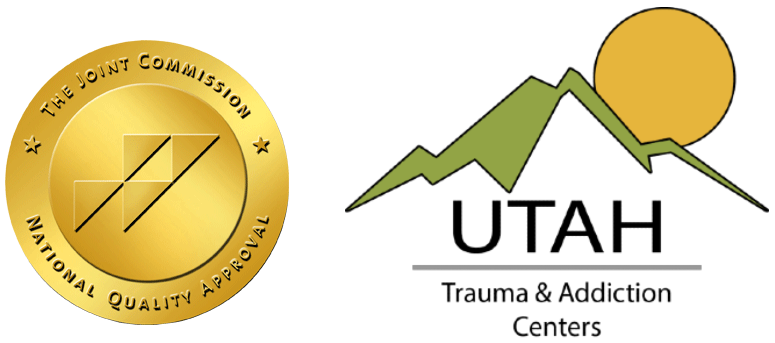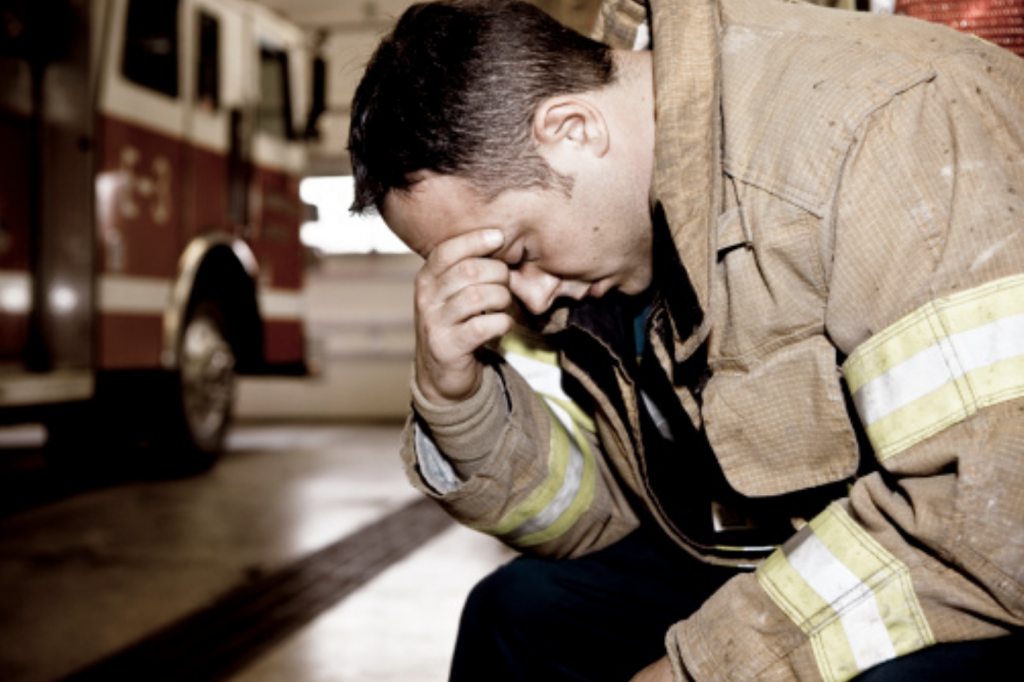
Providing Amazing Mental Health & Substance Abuse Treatment for First Responders
Mental health (PTSD & trauma) and substance abuse residential treatment for First Responders
The Utah Trauma & Addiction Centers has a long history of supporting and treating US military veterans and emergency responders. We value working with these individuals and consider it an honor to work with them. We contract with Operation Underground Railroad (O.U.R.) along with other agencies to ensure these heroes needs are met.
Populations Served:
- Military (Active & Retired Veterans): Diagnosed PTSD cases among the armed forces have jumped an astounding 50% higher with a current approximate suicide rate of 25 per day.
- Law Enforcement: In 2018; approximately 170 police officers took their life which is more than those who died while in the line of duty.
- Correctional: Close to 40% of correctional officers report moderate to severe PTSD symptoms.
- Dispatcher: 25% of emergency dispatchers report moderate to severe PTSD symptoms.
- EMS (Emergency Medical Services): Approximately 40% of Emergency Medical Service (EMS) workers are diagnosed with moderate to severe PTSD which is 10X the rate of the general population.
- Firefighter: 40% of firefighters throughout the nation report moderate to severe PTSD symptoms.
Learn About Our First Responder Residential Trauma-Informed Care Treatment
Our First Responder clientele can expect to participate in 20 hours of personalized residential trauma informed care treatment groups per week. However, this does not include the extra curricular activities (recreational therapy/outdoor adventures), community self-help meetings and basic psycho-educational sessions we will also provide you on a weekly basis. Lastly, we will ensure that you have ample access to both individual (EMDR, Bio Sound, Neurofeedback, etc.) and family therapy sessions to cater to your specific trauma and PTSD symptoms.
Utah Trauma & Addiction Centers’ First Responder Mental Health & Substance Abuse Treatment is an intensive close-knit program. Through our own experience as well as evidence-based research; it is well known that there are more beneficial treatment outcomes through therapeutic group sessions as opposed to private individual sessions.
Depending on the severity and clinical needs for the emergency responder, the Utah Trauma & Addiction Centers offers individual outpatient therapy (approx. 1 to 2 hour sessions each week), Day Treatment (Up to 40 hours per week), and Residential Treatment (24/7 treatment for a minimum of 30-days). We also offer weekly aftercare groups and family therapy for loved ones.
The main reasons for a more favorable outcome through group participation are as follows:
- Avoiding terminal uniqueness through discovering common similarities
- Avoiding isolation by experiencing external validation
- Gaining interpersonal insight through cognitive/emotional/spiritual growth from self-disclosure
- Increasing compassion and empathy for others
- Accepting crucial accountability through peers challenging your thinking errors
- Increasing your vulnerability through sharing your darkest secrets to finally purge the toxicity
According to Bessel van der Kolk, MD; the therapeutic group setting is proven to be the most effective residential trauma informed care treatment process. The primary issue in resolving a First Responder’s PTSD and Trauma is to regain a stable cognitive balance between the emotional and logical parts of their brain. This is important so that you are able to regain control of your emotions, choices and overall life in general.
The therapeutic group community that Utah Trauma & Addiction Centers offers; helps the First Responder to learn to work together to achieve their personal treatment goals as they simultaneously help the other members of the group succeed in accomplishing their personal treatment plan. Of course this residential trauma informed care program is highly staffed with physicians, floor staff and master level clinicians. We would never leave you to your own demise when it comes to healing from your moderate to severe PTSD.
The evidence-based and other beneficial treatments that Utah Trauma & Addiction Centers offers are:
At the Utah Trauma & Addiction Centers, common maladies addressed with emergency responders include posttraumatic stress, depression, anxiety, and addiction. The treatment we offer includes: Cognitive Behavioral Therapy (CBT), Eye Movement Desensitization and Reprocessing (EMDR), Dialectical Behavioral Therapy (DBT), Neurofeedback (NFB), and a multitude of experiential therapy modalities including Equine Assisted Psychotherapy (EAP).
- DBT (Dialectical Behavior Therapy): DBT is used to assist in handling emotional dysregulation more effectively; DBT helps you learn new coping skills to deal with everyday life situations. During our client’s residential stay; they intuitively learn these skills from all 4 DBT approaches. DBT therapy is conducted on a weekly basis.
- EMDR (Eye Movement Desensitization and Reprocessing): EMDR is an evidence-based therapy technique developed to address traumatic memories through 8 different stages. When you experience trauma; it is so disturbing to your mind that it overwhelms your brain’s capability to process and store the information correctly as just a memory and therefore the experience becomes a negative memory which is now trapped until finally addressed properly. EMDR is available to our clientele both privately and in group settings weekly.
- CPT (Cognitive Processing Therapy): this is a trauma focused variation of CBT (Cognitive Behavioral Therapy) which is meant to help your brain use more healthy critical thinking skills. The premise of CPT is to allow you to think more clearly and logically by disputing unhealthy thoughts/beliefs you created to rationalize your traumatic experience(s) which is currently keeping you trapped in a false reality. CPT therapy is done on a weekly basis.
- Neurofeedback Therapy: this type of therapy is also called EEG Biofeedback; which is a way to train brain function. During neurofeedback therapy, the brain learns to function more efficiently. Using advanced technology and software, our clinicians at Utah Trauma & Addiction Centers use electroencephalogram (EEG) patterns to observe electrical currents of the brain in action. EEG is a test that detects abnormalities or electrical activity in brain waves. As we observe the brain in action, the person receiving the training receives feedback in the form of visual, audio, or tactile (touch-vibration). The feedback is a gradual learning process for the brain, and it applies to any part of the brain that can be measured. Neurofeedback is essentially training in self-regulation which allows improved functioning in the central nervous system (CNS). Neurofeedback therapy is offered weekly for all of our clientele.
- MBB (Mind Body Bridging): this therapeutic approach teaches you to bridge the gap between the emotional and the logical functions by taking the time to naturally slow things down in order to learn how to best identify your manufactured stories which impulsively causes unnecessary hyper-arousal. MBB is done weekly.
- Bio Sound Therapy: this type of therapy is a hybrid of Biofeedback and Music Therapy; which both are evidence-based practices. Biofeedback in one form or another has been used for thousands of years throughout history. By combining sound and breathing or using a mantra during meditation; it is believed to channel the flow of energy through the mind-body neural pathways and balancing brain hemisphere imbalances. Using music or sound as a healing medium has been beneficial for many PTSD clientele. Bio Sound is available weekly.
- Shame Resiliency: shame, stress and resentment are the largest predictors of relapse; as well as indicators of mental health if left unaddressed. Since shame is the most common feeling associated with trauma (PTSD); Utah Trauma & Addiction Centers’ clients are taught the best shame resiliency skills to ensure a genuine life full of purpose and meaning. Shame resiliency therapy is offered on a weekly basis.
- Recreational Therapy: this type of therapy is important because the principal objective is to improve your functioning and assist you in staying as active, healthy and independent as possible. What makes this approach unique is the use of recreational opportunities as part of your individual treatment plan. By incorporating your interests, your family and friends, and your community; our recreational therapist will make the therapeutic process for you much more meaningful and relevant. Recreation Therapy is widely regarded as an essential piece of residential treatment recovery. Becoming more physically healthy allows a First Responder to become mentally healthy with more occurrences of natural joy. Many clients often dissociate from their physical bodies, and therefore are further separated from their spiritual best selves. The sky is the limit when it comes to the various inpatient activities you can experience while at Utah Trauma & Addiction Centers.
- Psychodrama: this approach helps bring closure with moderate to severe PTSD trauma issues. Concerning Psychodrama, you can volunteer (we never force you to do something that can be anxiety ridden or accidentally triggering) to do an enactment about something painful that needs to be addressed. The therapeutic group community then shares their reactions/experiences about the re-enactment and then closes with gratitude, insight or affirmations. Psychodrama is currently offered weekly.
- Self Help Community Meetings (AA, NA, GA, etc.): this type of psycho-education help is an excellent form of long-term aftercare once you have finished our residential trauma informed care. By attending these type of meetings, you are able to participate in experience, strength and hope as often as desired. By no means does Utah Trauma & Addiction Centers believe that these type of meetings will ever replace treatment; however we do believe that the more you integrate with your community, the higher the likelihood you will maintain good mental health and prolonged recovery. You will have access to various self-help meetings on a weekly basis while attending Utah Trauma & Addiction Centers.
- Self-Compassion and Radical Acceptance: Certain research shows that building self-esteem is not nearly as effective as addressing your self-compassion; which is the most effective means of overcoming your shame and negative feelings. Loving yourself aside from any external validation is directly correlated with having good mental health, overcoming your pain and trauma as well as maintaining long-term sobriety. Our First Responder residential clients are taught the skills of self-compassion which is: mindfulness; self kindness, general humanity and radical acceptance through various experiential activities. This type of therapy is offered weekly.
- Gym and Exercise: Utah Trauma & Addiction Centers firmly believes in the importance of regular physical exercise. We help you address your mind, body and soul while with us so that means we help your body get back in to a much happier and healthier shape. You can expect to attend the gym 5-6 times per week.
- Meditation and Mindfulness: this therapeutic approach teaches you how to take the crucial time-outs required to discover new ways to overcome the unhealthy habits you have developed over the years as a faulty coping mechanism in order to escape your unwanted feelings. Utah Trauma & Addiction Centers will help you gain control over your physical symptoms such as your heart rate through breath work and raising awareness to all of your body triggers. This type of therapy is offered weekly.
- Equine Therapy: Regardless of what type of PTSD or trauma you are currently facing, you can find peace and clarity through our equine therapy. With the help of these large, gentle animals; First Responders are able to see their own behavior mirrored, thus allowing them to begin working through pain, frustrations, anxiety and other debilitating conditions, to find freedom and confidence. Offering a variety of equine therapy options from group dynamics, trauma, and cognitive and behavioral therapy; this type of therapy is unlike any other kind you can participate in. During equine assisted therapy sessions, you work with a horse trainer and a therapist, taking each movement and interaction with the horse as a way to help First Responders better understand themselves and their own feelings and actions. Horses tend to be hyper-vigilant and very aware of their environment; much like people who have experienced trauma or live with anxiety, making the connection between humans struggling with these conditions and horses that much easier and that much more important.
- Internal Family Systems (IFS): this approach addresses the “parts” within you to help you become more in balance with yourself as well as your environment. More often that not, the majority of your sub-conscious is super protective in an attempt to keep you from getting harmed again. IFS teaches you how to create sacred space and let go of the protective parts that are no longer serving a healthy purpose. IFS is conducted weekly.
- Schema Therapy: this approach teaches you about your most common schemas that are keeping you stuck in patterns of old maladaptive behavior(s). Schema therapy is done on a weekly basis.
- Yoga: Utah Trauma & Addiction Centers considers yoga to be an important part of their residential treatment program. Yoga is a regulation technique that helps with traumatic/PTSD healing by managing your heart rate and calming your nerves. Through yoga, our clients learn the subtle signs of their bodies and how to better manage their breathing and heart rate to assist in overall regulation. Yoga is done weekly.
Utah Trauma & Addiction Centers is nestled in the foothills of Utah County offering an amazingly cozy and warm home-like feeling overlooking Utah Lake. We offer a mixed population of First Responders and the general population to allow you to see (and provide) perspective from both sides of the fence.
When The First Responder Is Not Healthy; The Family Is Also Not Healthy!
First Responder families face the same challenges as the general population, however they also face an entirely different set of problems. You and your family can act proactively by recognizing the stressors unique to your First Responder symptoms. The first step in healing is to be honest in admitting there is a problem that needs to be addressed.
Here is a list of the more common stressors First Responders face on a regular basis:
- Long work shifts
- Odd work hours
- Emergencies occur 24/7/365
- Unable to walk away from a situation
- Unable to leave a situation until it is fully resolved (regardless of work shift hours)
- Constant disruption in normal life functions due to the nature of an emergency
- Increasingly finding your only identity in work (workaholism)
- Work situations are exceptionally emotionally, physically and spiritually draining
- Battling feelings of guilt and shame if unable to help or even save a life
- Constant sense of duty by taking on more work shifts thus neglecting your family and friends
- Constant roller coaster ride (calamity one minute and calm the next)
- Never able to maintain a regular schedule with the same type of situations on a daily basis
- Constant bouts of anxiety, depression and PTSD from mild to severe traumatic experiences
- Bouts of suicidal ideations or actual attempts
- Higher rates of substance abuse
- Higher rates of domestic violence
- Emotional Numbness
- Apathy
- Hyper-vigilance
- Bouts of insomnia
- Extreme cynicism or black humor to cope with situations
- Isolation
- Bouts of disturbing or traumatic flashbacks
- Poor budgeting issues and financial affordability
- Poor family relations
As you can see; Utah Trauma & Addiction Centers knows exactly what the First Responder has to endure on a regular basis. We work hand-in-hand with our First Responders and their families or loved ones. One of our primary focuses is to help the everyone transition back into their community where everyone is happy, healthy and whole. By offering our therapeutic resources to those closest to the First Responder; we are creating a more positive and lasting relationship in and outside of the family dynamic.
Utah Trauma & Addiction Centers’ Residential First Responder Family Therapy Involves:
- Intensive family workshops
- Individualized treatment with a primary therapist
- Understanding how the family operates
- Identify strengths and weaknesses within the family sub-system
- Detailed treatment plan established to address and resolve issues
- Improve ongoing communication
- Marital or partner conflicts
- Parent-child relational issues
- Issues among siblings
- The ongoing effects of illness and substance abuse on the family
Utah Trauma & Addiction Centers offers an amazing opportunity for this critical work to take place. We guarantee incredible results so long as the First Responder and their family is open, honest and willing to create a better life! We are here to help from start to finish. If you feel you are a good candidate for our First Responder residential trauma informed treatment care program, give us a call today or take the trauma survey below to learn more about the severity of your current status.
Utah Trauma & Addiction Centers PTSD / Self-Directed Trauma Survey
Keep in mind that this survey does not constitute and official diagnosis of PTSD and is only a measurement tool to help you see if any of the below symptoms describe your current life situation. For a true assessment/diagnosis; please call Utah Trauma & Addiction Centers today!
Re-occurring Symptoms: Memories and images of your traumatic events may intrude into the minds of those struggling with trauma. They take place out of the blue without evident cause. They have been often accompanied by intense emotions, such as grief, guilt, anger, or fear. Sometimes they can be quite so vibrant a person thinks the trauma is actually re-occurring.
Nightmares, Night Terrors
Sleepwalking, Sleep fighting
Unwanted Daytime Memories, Images, Thoughts, Daydreams
Flashbacks, Feeling Like You’re Reliving the Traumatic Event
Somatic Flashbacks
Fixated on Experience, Living the Past
Spontaneous Psychotic Episodes
Panic Attacks, Undefined Dread or Fear
Phobias
Avoiding Symptoms: Traumatized individuals attempt to prevent situations, individuals or events that remind them of their trauma. They feel helpless, emotionless, withdrawing into their own; trying to shut out the painful memories and feelings. Friends and family feel threatened by them, as they aren’t able to show appropriate affection and emotions.
Avoiding anyone or anything that reminds you of the traumatic event
Physical/emotional reaction to things that remind you of the traumatic event
Self-isolating, dread or social interaction
Anxiety in crowds, traffic
Despair, depression, sadness, emptiness, loneliness
Inability to trust others
Very reluctant to talk about your traumatic event
Lack of interest regarding employment, recreation, former hobbies, sex and exercise
Relationships that were once close and even intimate are now strained, cold, and distant
Emotional numbness, flat, can’t get happy or sad, ‘dead inside’
Substance abuse to ‘numb’ yourself (drug, alcohol, food)
Physical fatigue
Neglect/abandon personal care, hygiene, nutrition, exercise
How Long Have You Been Experiencing These Symptoms?
0- 6 Months
6 Months to 1 year
1-5 years
5+ Years
We Are Happy To See If your Insurance Covers Your Entire Treatment!
Benefits are verified in the order they are received. If after business hours it maybe the next day. Some insurances aren’t available on weekends. If this is an emergency and you need immediate admission, then please call our admissions department at (801) 766-2233.
Utah Trauma & Addiction Centers Team
Jeremy Boberg
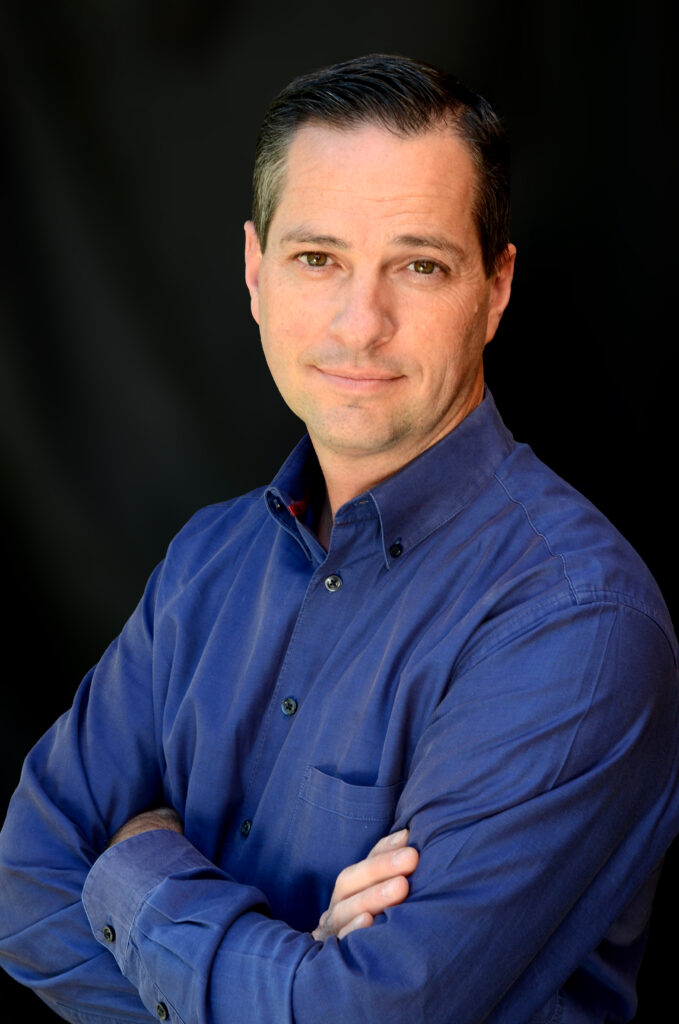
Founder and CEO: LCSW, ASUDC – EMDRIA, CMAT
With over 15 years in behavioral health and dual diagnosis treatment, Jeremy designed and founded the Utah Trauma & Addiction Centers. Specializing in holistic and person centered treatment for mental health and addictions.
As a clinical therapist, he specializes in the treatment of substance abuse, sexual/pornography addiction, and compulsive behaviors. He also specializes in Post Traumatic Stress Disorder (PTSD), Mood Disorders, and Borderline Personality Disorder (BPD). He completed his Master’s in Social Work at the University of Utah and is certified by the EMDR International Association (EMDRIA), is a National Interventionist II, National Chemical Addiction Counselor II, Equine Assisted Psychotherapist, and is a Certified Sex Addiction and Multiple Addiction Therapist (CSAT/CMAT) through the International Institute for Trauma and Addiction Professionals. He is a past president of the Association of Utah Substance Abuse Professionals and has served on multiple state and national boards for the treatment of mental health and substance abuse.
In 1995, he married his wife Emily and together they have four children. Cherished time with his family often includes outdoor activities including four wheeling, hiking, hunting, and traveling. He is an active member of the Church of Jesus Christ of Latter-day Saints and may start golfing when he is too old to ride his mountain bike.
Darron Boberg
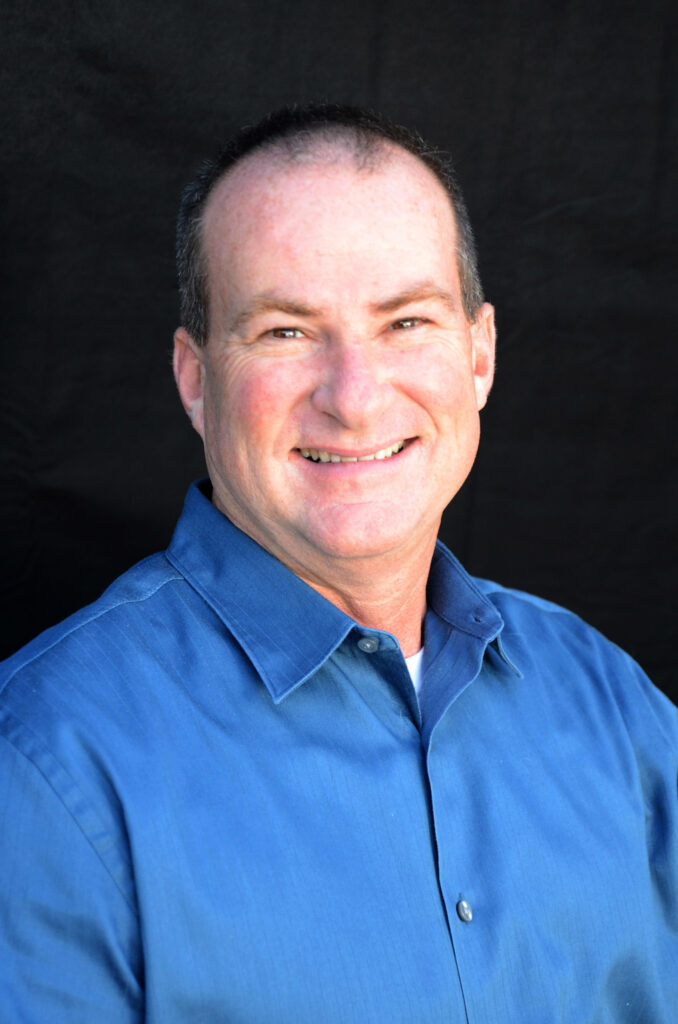
Co-Founder and Program Director
Darron has extensive experience specializing as an administrator in behavior healthcare treatment, insurance billing, program development and implementation, licensing, and regulations. As Program Director, he maintains many day-to-day facility operations including staff management, insurance and billing, orchestrating tours and admissions, directing local and national marketing, and scheduling family involvement and other resident needs. Previous to his work in the field of behavioral health he was a regional director of a fortune 500 company. His professional background and skills create a professional and person centered atmosphere.
Happily married since 1994, Darron and his wife have three teenagers that keep them active. Their family time includes mountain biking, outdoor hiking, fishing, camping, hunting, and traveling.
Dr. Donald Harline
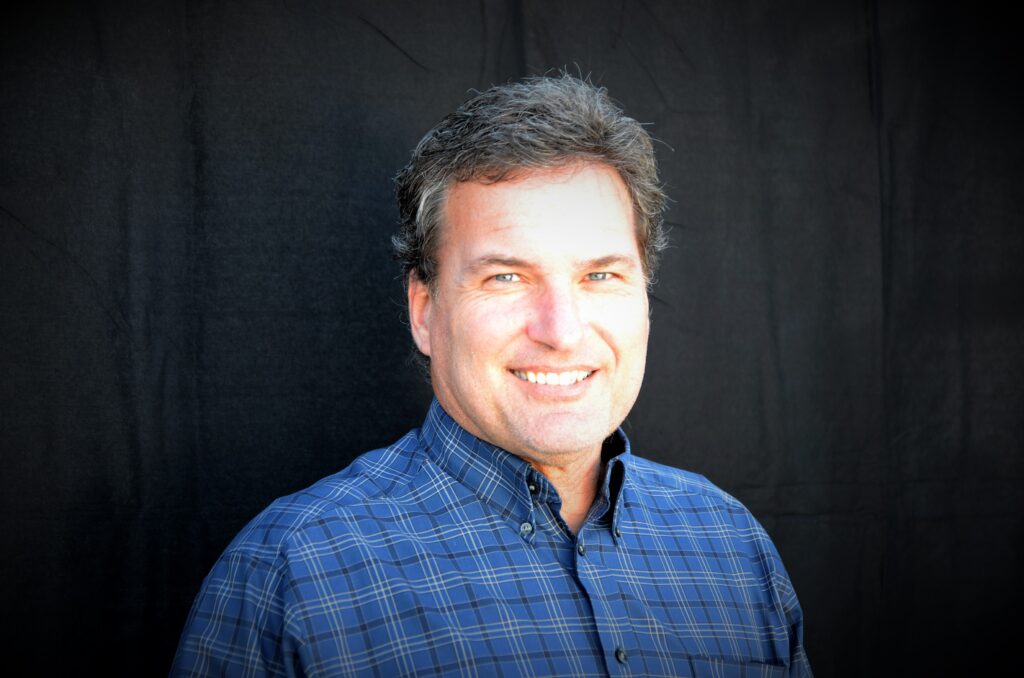
Medical Supervisor: M.D.
Dr. Harline is a family medicine physician affiliated with multiple hospitals in the Utah County area. He received his medical degree from Loma Linda University School of Medicine in California and has been in practice for over 22 years. He specializes in addiction medicine and is suboxone certified. He has obtained several awards that include: “Patients’ Choice Award” in 2010 and 2013 along with the “Compassionate Doctor Recognition” award in 2010, 2013, and 2014.
